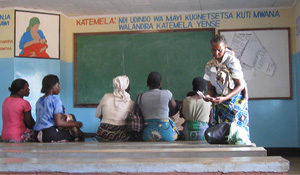Although HIV-prevalence and fertility rates in sub-Saharan Africa are among the highest in the world, little is known about how HIV infection affects the fertility preferences of men and women in the region.
A quasi-experimental design and in-depth interviews conducted in rural Malawi are employed to examine how and through what pathways learning that one is HIV positive alters a person’s childbearing desires. Among rural Malawians, particularly men, the desire to have more children decreases after receiving a positive HIV-test result.
The motivations underlying this effect are greatly influenced by gender: women fear the physical health consequences of HIV-positive pregnancies and childbearing, whereas men see childbearing as futile because they anticipate their own early death and the deaths of their future children. Considerable ambivalence remains, nevertheless, particularly among women who strategize to live normal lives in spite of their infection, but whose definitions of “normal” vary.




